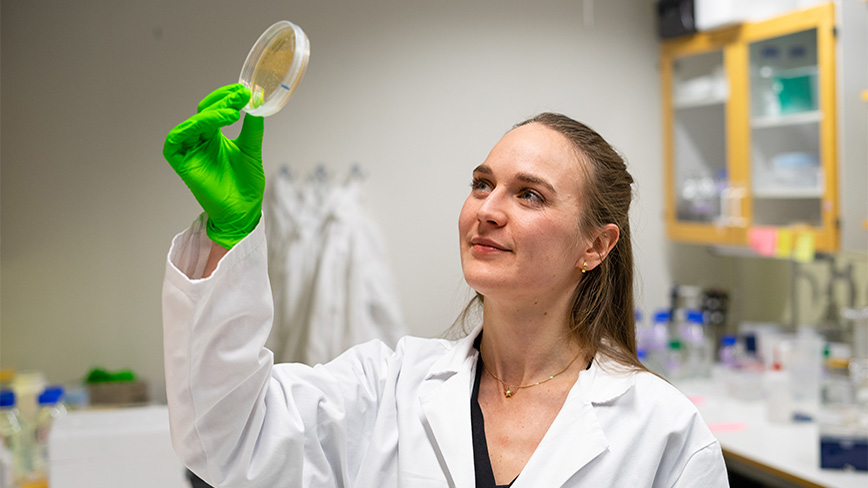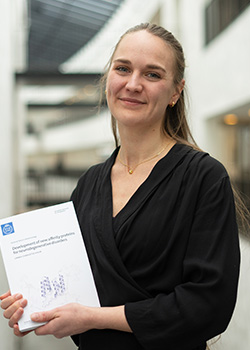Linnea Hjelm has always been interested in the brain

Linnea Hjelm is a recent PhD in protein science at KTH. Her thesis deals with the development of new proteins that could be used as biological drugs for neurodegenerative diseases.
”I have always been interested in the brain, how it works and why diseases can occur.”
Neurodegenerative diseases such as Alzheimer's and Parkinson's disease affect many people worldwide every year. In 2019, over 57 million people had a diagnosis globally, and within 30 years this figure is expected to increase by more than 300 percent, according to Linne Hjelm. Today, few potent treatments are available and the future need is enormous.
“Since last autumn, the first two biological drugs against Alzheimer's disease that act on the course of the disease have been made available in the USA, which is huge. These drugs aim to slow the progression of Alzheimer's. The research conducted here at KTH aims to develop new types of biological drugs with the ability to prevent the development of diseases such as Alzheimer's and Parkinson's,” says Linnea Hjelm.
Neurons break down
Neurodegenerative diseases mean that the neurons in the brain break down and affect its function. The proteins that Linnea Hjelm was involved in developing have the ability to block a harmful "clumping process" in the brain from occurring and could thus be used to influence the course of the disease.

“The brain is protected by a blood-brain barrier that stops drugs from entering. Therefore, we have also developed another protein to "take a cheap ride" with a protein for the natural transport of iron into the brain. In this way, it is possible to increase the uptake and effectiveness of biological drugs against neurodegenerative diseases.”
A complex diseases
Today, neurodegenerative diseases are still a disease group where the cause of disease is not fully understood. Several theories exist about why we get the diseases and what causes them, but nothing is fully understood yet, according to Linnea Hjelm. It has proven difficult to develop drugs that significantly affect the course of the disease.
“More alternatives will be needed in the future and the developed protein structure described in the thesis opens up new and further development towards this goal.”
How did you become interested in the subject?
“During my studies and degree work in biotechnology within the civil engineering program at KTH, I came into contact with protein science and how proteins can be designed to treat diseases. When the opportunity came to do a PhD in the development and testing of a new protein structure aimed at neurodegenerative diseases and the transport of biological drugs into the brain, it was an obvious choice,” says Linnea Hjelm.
Text and photo: Jon Lindhe
